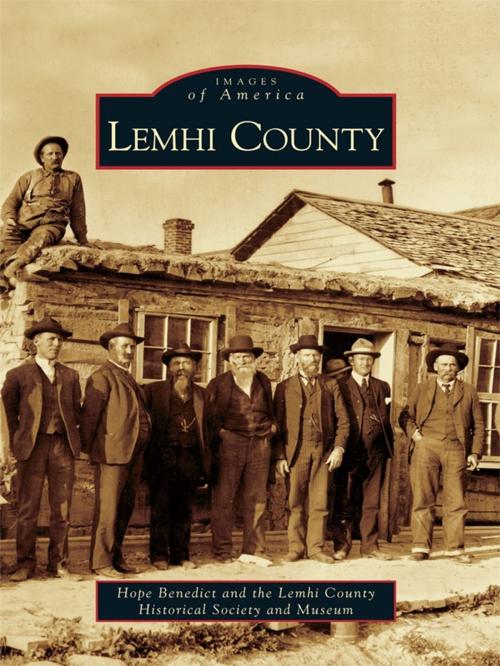| Author: | Hope Benedict, Lemhi County Historical Society and Museum | ISBN: | 9781439614587 |
| Publisher: | Arcadia Publishing Inc. | Publication: | June 14, 2006 |
| Imprint: | Arcadia Publishing | Language: | English |
| Author: | Hope Benedict, Lemhi County Historical Society and Museum |
| ISBN: | 9781439614587 |
| Publisher: | Arcadia Publishing Inc. |
| Publication: | June 14, 2006 |
| Imprint: | Arcadia Publishing |
| Language: | English |
Situated at the base of the Continental Divide and surrounded by the Lemhi and Salmon River Ranges, Lemhi County, Idaho, provides a fascinating look at the �Old West� as it makes its precarious transition to a new order. Traditional homeland to the people of Sacajawea, Lemhi County became a destination point for Lewis and Clark as they worked their way across the continent, for trappers, for missionaries, and finally, in 1866, for prospectors and those who kept them fed, clothed, and entertained. The community that developed in the valleys of the Salmon, Lemhi, and Pahsimeroi Rivers benefited from long-term mining and the simultaneous evolution of ranching and the timber industry, and this growth was well documented by local photographers.
Situated at the base of the Continental Divide and surrounded by the Lemhi and Salmon River Ranges, Lemhi County, Idaho, provides a fascinating look at the �Old West� as it makes its precarious transition to a new order. Traditional homeland to the people of Sacajawea, Lemhi County became a destination point for Lewis and Clark as they worked their way across the continent, for trappers, for missionaries, and finally, in 1866, for prospectors and those who kept them fed, clothed, and entertained. The community that developed in the valleys of the Salmon, Lemhi, and Pahsimeroi Rivers benefited from long-term mining and the simultaneous evolution of ranching and the timber industry, and this growth was well documented by local photographers.















